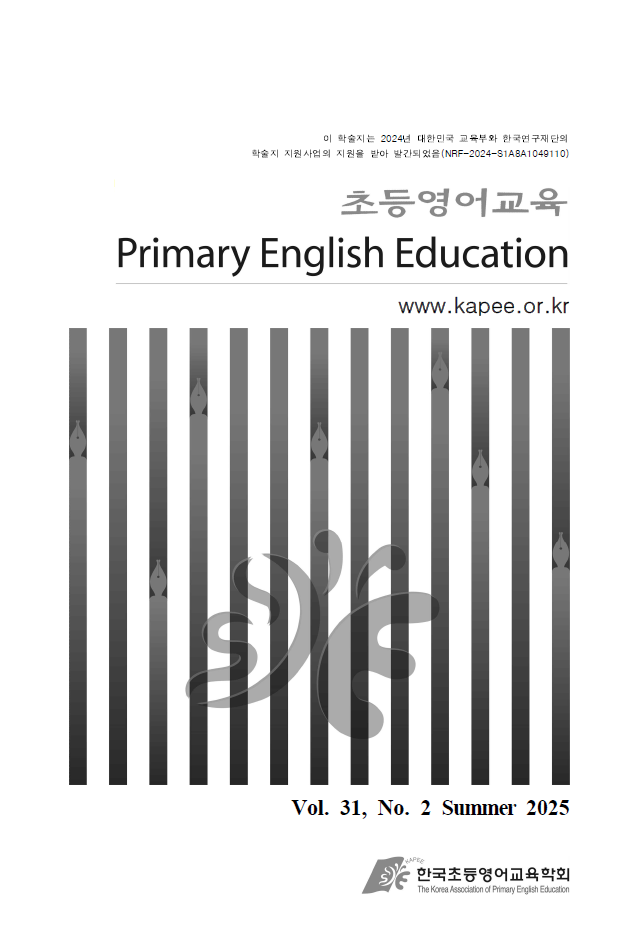영어과 AI 융합수업에 관한 초등교사의 경험 및 인식
- 한국초등영어교육학회
- 초등영어교육
- 제31권 2호
-
2025.0695 - 120 (26 pages)
-
DOI : 10.25231/pee.2025.31.2.95
- 18

This study explored how elementary English teachers conceptualized and implemented English–AI convergence classes. Four elementary school teachers participated, and data were collected through semi-structured interviews and reflective journals. The data were analyzed qualitatively using content analysis. Findings revealed that teachers held varying perceptions of English–AI convergence instruction: some viewed it as an aspect of interdisciplinary teaching, while others regarded it as a form of curriculum-level restructuring. Motivations for implementation included intrinsic interest and awareness of AI’s instructional potential. Teachers expressed significant concern about the lack of applicable instructional models, as well as ethical and technical challenges. In practice, they utilized diverse AI tools to tailor lessons to classroom contexts. Reported outcomes included enhanced personalized learning and increased student engagement. However, challenges such as students’ overreliance on AI, limited teacher preparedness, and inadequate infrastructure were also noted. Teachers emphasized the need for high-quality, context-sensitive professional development and proposed improvements in teacher education, school environments, educational platforms, and policy support. As AI technologies continue to advance in education, addressing teachers’ perceptions and building their competencies is essential for meaningful integration. This study offers practical insights and suggests directions for the sustainable implementation of English–AI convergence instruction in elementary education.
(0)
(0)